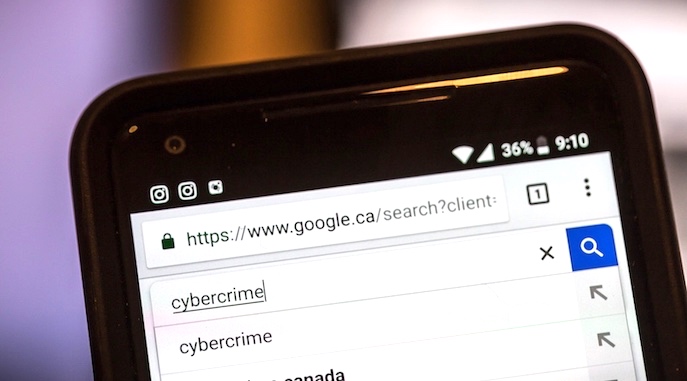In 2018, one of the most important things you can change about your day to day is how much you protect yourself from the possibility of cybercrimes. Canada is facing more and more of these crimes every year and we must do something to slow the skyrocketing number of cases being reported. Cyber security is becoming increasingly important.

According to Statistics Canada, reported cybercrime has been increasing at a worrisome rate. In 2014, there were 15,184 cyber related crimes reported. In 2015, there were 17,887 and then in 2016 there was a big jump up to 23,996. The number one reported crime was fraud which made up 11, 383 of the 2016 reported cybercrime numbers. So how do we protect ourselves?
We wanted to hear from the pros about what we can all do to improve our security online and with mobile devices. Ajay K. Sood is the VP, Country Manager/Directeur Général in Canada for the security company Symantec who provide security products and solutions to protect small, medium, and enterprise businesses from advanced threats, malware, and other cyber attacks. He had some great cyber security tips that e can all use to help protect ourselves.
Email Safety
Email is the #1 vector for cybercriminals to breach people. Malicious links, attachments, and documents are commonplace, and are highly effective as social attack techniques. Emails regarding invoices, past due bill payments, shipments and the like are often used to pique the curiosity of the victims, causing them to open the malicious link or file, which then uses vulnerabilities to breach the victim’s machine or mobile device. To stay safe on email, always ensure your messaging software is up to date, be it on a computer or mobile device. Additionally, all browser software and plugins should also be kept up to date. Finally, common sense should prevail when it comes to opening messages and attachments from people you don’t know. This is not as easy as it sounds. Sometimes, when a friend’s machine is compromised, their account is used to send out these malicious emails – beware! If the message doesn’t feel right – it usually isn’t. Look for spelling errors, generic language, and inaccuracies in the messages you receive.
Shopping Online Safety – Desktop
It goes without saying, only shop online from reputable websites using an up-to-date browser or app. Generally speaking, these are well branded and are sometimes certified secure by well-known security vendors like Norton/Symantec. Additionally, pay close attention to how your credit card information is being harvested. Is the link secure or encrypted (check the location bar for a lock)? Websites using a trusted 3rd party payment processor like PayPal to collect payment aren’t taking your credit card number, so that increases confidence. Finally, designating a specific credit card with a relatively low limit for online purchases is advisable. This way, you are minimizing the impact of a potential credit card breach. Finally, read your credit card statements, and immediately report suspicious transactions!
Mobile Phone Safety – Shopping on it, paying for stuff with it
The mobile payment society is imminent, and enormously convenient. Most mobile devices are now equipped with near-field-communication (NFC) chips for contactless payment, like Apple Pay. Most of these payment methods can be locked down with user passwords and even biometrics like fingerprint scans – use these techniques! Treat your mobile devices and smart watches like your wallet and credit cards!
Talking / Texting on Mobile Devices – Classified/Private Information etc.
Mobile device malware is a reality. Toolkits and rogue apps that are able to spy on your conversations, calendars, email, texts and the like exist, and are sometimes embedded in innocuous-looking apps and games. These malicious apps are sometimes available alongside legitimate apps on common application marketplaces like the Google Play Store or Apple App Store. Be wary of what apps you choose to install. Ensure they are from reputable sources, and verify how long the app has been published and downloaded. Finally, in the Android world, look at the permissions an app is looking for when you install it. If a video game is looking for full access to your device, other information, your camera and microphone, and other resources, chances are it is not well written, or secure!
BONUS TOPIC – IoT Devices
This year, many of us will be giving or receiving “smart speakers” like Google Home or Amazon Echo. These are remarkable devices with tons of power and potential. That said, be careful as to what privileges you give them. If you allow them to buy things on your behalf through voice activation, anyone within speaking range can get these smart devices to act on your behalf. You make find it convenient to configure Alexa to unlock the front door, but if someone can audibly instruct Alexa to unlock the door through a window or from the outside, this may have undesired results. Use these smart speakers for entertainment purposes and to control lights, but avoid having them perform security or purchasing functions!




